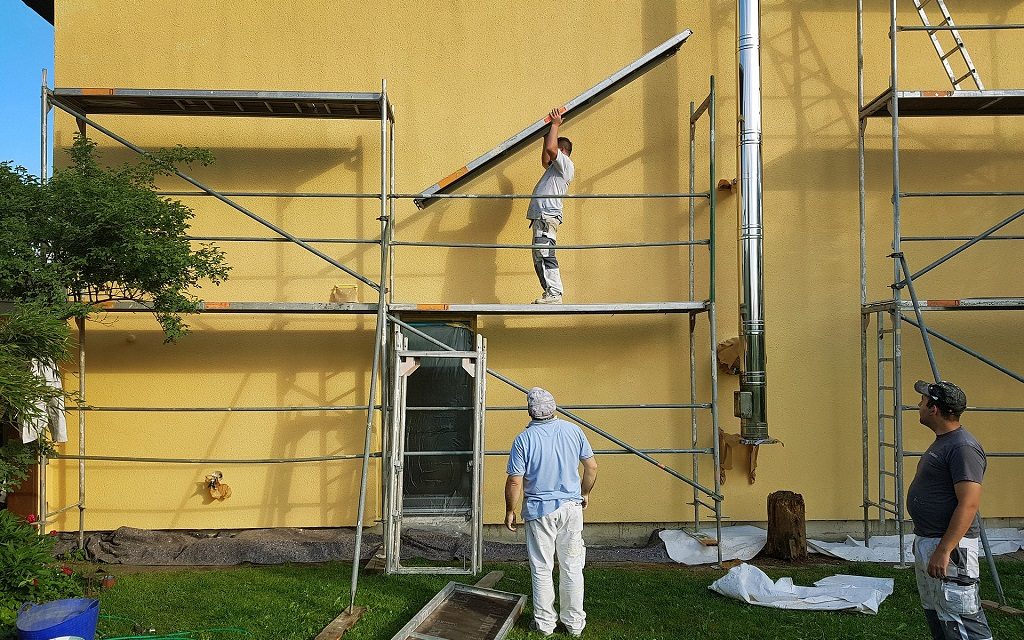Updated June 5, 2021.
Why can it be so difficult to find a good contractor, and conversely, why it is so easy to hire a bad one? Understanding these underlying dynamics will help you take a strategic approach to selecting a vendor. This method will increase your chances of landing a quality contractor for your most challenging and important projects. By “quality”, we mean finding a reputable and proven contractor that meets your key needs and quality standards.
1. Be Patient and Allocate Sufficient Time
The most important variable is having sufficient time to wait for a high quality contractor’s availability for your project. The primary reason that adequate time is so important is that the best contractors are consistently in high demand, and are not readily available to take on new projects. They must be booked well in advance, which requires homeowners to be patient and flexible when working with contractors’ schedules.
However, a long lead time can be beneficial, as more diligent planning can take place, which will help reduce the chances of setbacks and delays. Your patience will likely increase once you delve into the details of your project and understand preparations prior to the contractor’s start date. The larger and more complex a project is, the more time you will need to plan your project and to research prospective contractors.
After a contract is signed, reputable contractors have processes in place to flesh out requisite details prior to the start date, such as choosing colors, materials and fixtures.
Another aspect of time, is how long a project is projected to last. Keep in mind that good contractors do not cut corners, so their proposals may seem unnecessarily long when compared to less experienced bidders. But doing things the right way will significantly reduce the chances of unexpected cost increases and project delays.
2. Understand How to Assess Costs
The next most important variable is cost. Simply put, your budget expectations may not be properly aligned with the rates of top contractors. Though higher quality work can often justify higher fees, higher bids can also be a reflection of a higher degree of accuracy. Less qualified contractors may be prone to propose lower costs due to a lack of experience, hunger to win new clients, or poorly specified statements of work.
On average, more experienced contractors will have fewer change requests and cost increases than less experienced contractors due to having a more competent grasp of the details. Additionally, reputable contractors, on average, will have more thorough workmanship, which will help prevent costly post-project issues. Therefore, the bids from quality contractors may appear to be more costly upfront. However, in the long term, their fees may actually be significantly lower when “total cost of ownership” is taken into consideration.
The true total cost of a project needs to account for change requests, such as necessary work that was unspecified in the original proposal. Additional costs pertain to workmanship and warranties. Lower quality work will have issues that need to be addressed, which will cost, at a minimum, time and inconvenience.
Potentially, the most expensive and risky costs have to do with liability issues, when things go wrong, e.g.: evading the permit process; employing unlicensed, uninsured or under-insured contractors; or having insufficient homeowners insurance. Unpermitted work is especially risky when selling your home, as you can be liable well after the sale, if your faulty work causes damages to the buyer.
The best approach to ensure that you are receiving fair bids, is to receive multiple bids (at least three) for similarly itemized jobs. Providing highly thorough requirements to prospective contractors is imperative to receive comparable bids. Additionally, you should research average market rates for your project type (e.g. kitchen remodel; bath remodel) based on square footage. Reputable contractors will know local market rates and will be able to explain why their rates vary, if in fact they do.
3. Get Referrals You Can Trust
Though we agree that personal references are valuable and should be considered during the contractor vetting process, keep in mind that your quality standards may not be the same as those of your referrers. That said, we definitely recommend seeing the work of any recommended contractors to judge if quality requirements are aligned.
In parallel to personal referrals, we strongly recommend contacting well-established professional trade suppliers in your local market for additional referrals. It may be best to speak to someone in person to help establish trust and rapport. The suppliers will know who their best customers are, who will be contractors who have provided reliable service, over a long period of time. Example supplier stores to reach out to would be: small lumber yards; quality cabinet vendors; and privately-owned lighting, electrical and plumbing stores.
Professional supply stores can be used to vet your prospective contractors, as well. Simply ask around if anyone is familiar with your contending contractor. Once you get a knowledgeable person to start sharing, keep quiet and listen. This type of information is extremely valuable. Also take note of what is not mentioned. Polite but unenthusiastic feedback may be an indicator that a particular contractor may not be up to your standards.
4. Strive for a Mutual Fit
Because reputable contractors receive a high volume of word-of-mouth referrals, your project may be in competition with other projects. Therefore your project will need to fit the requirements of prospective contractors, in terms of: project budget; project scope; project originality; location; and complexity. If your project entails interesting design or building challenges, this might be attractive to contractors to demonstrate their unique expertise and problem-solving capabilities.
Therefore, when reaching out to prospective contractors, we recommend emailing details on the project first to allow the contractor to assess if this is a potentially good fit for the type of work in which they specialize. This will eliminate wasted time holding unnecessary on-site meetings. This approach is also important as the time of the best contractors is highly valuable, and they will not blindly agree to on-site visits, without sufficient requisite project information. To make this process easier, we recommend using a free RFP (Request for Proposal) tool that can generate a digital document that you can share with prospective bidders.
However, if you are seeking a more economical implementation, (e.g. for a rental property), there could be highly reputable contractors that cater to this market. Their invaluable capabilities would be to consistently deliver value-based solutions that meet sufficient quality standards, on budget, and on tighter schedules. In other words, some contractors may be better suited for “dream” renovation projects, where homeowners have more time and budget to get things done exactly right. In turn, other contractors may be better suited for more practical renovations that have pressing time constraints, such as prepping a property for resale.
Just as you will be judging prospective contractors, they will be judging you as a potential client. Do you present yourself as someone who has a realistic understanding of the process and will be fair to work with? Be yourself and upfront with your expectations, which will help flesh out a good mutual fit. Good contractors can handle demanding customers if their demands are realistic, fair and agreed upon upfront.
Related Articles
- How to Plan & Manage a Renovation Successfully
- How to Choose a Qualified and Trustworthy Contractor
- Essential Elements of a Home Renovation Contract
- Renovation Permits 101
- Cautionary Tales from the Non-Permitted
- Homeowner Liability and DIY Projects
- Budgeting for a Renovation
- Signs of a Bad Contractor Before You Sign a Contract
- How to Deal with a Bad Contractor and Reset Your Renovation Project
Purgula Renovation Resources
- Purgula Renovation Resource Hub
- Purgula Curbio Pre-Sale Renovations Guide
- Purgula Interior Design Resource Hub
- Purgula Home Wellness Resource Hub
- Purgual Homeowners Insurance Resource Hub
- Purgula Homeowner Glossary







